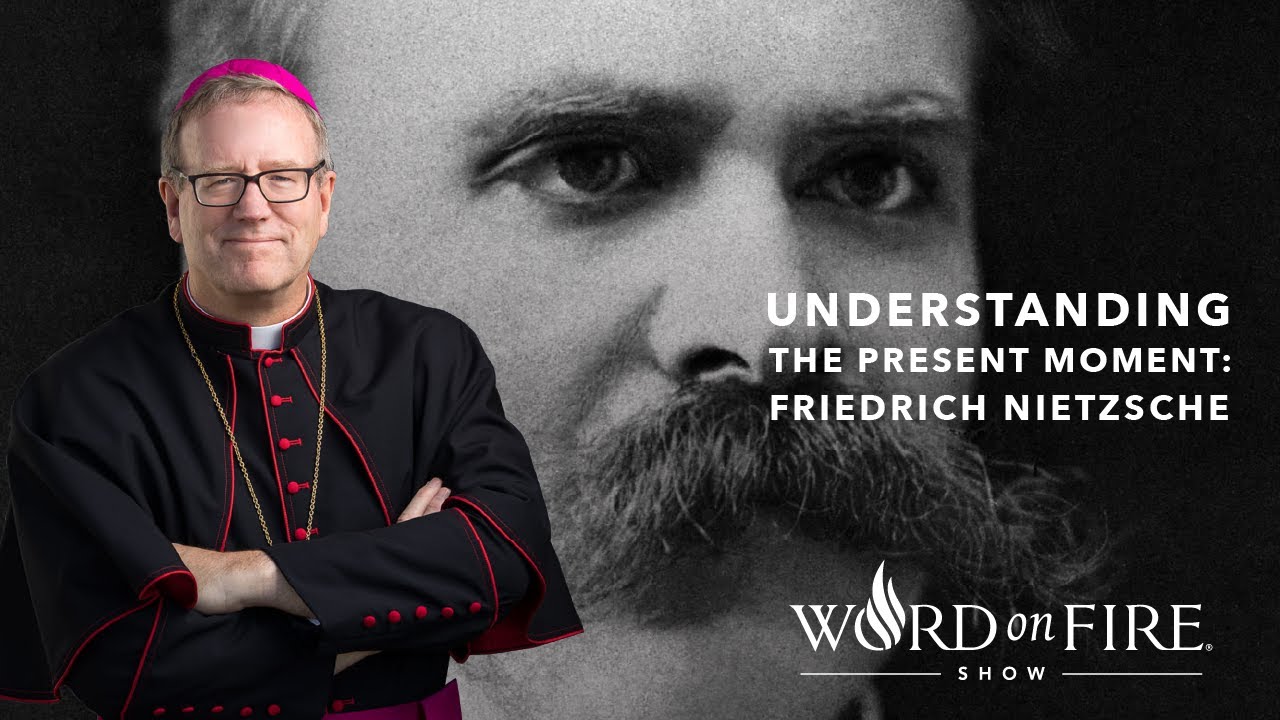Nietzsche - A Genealogia da Moral (Parte 2 - A Má-consciência)
Summary
TLDRThe transcript captures a lecture delving into Nietzsche's 'Genealogy of Morals,' exploring concepts like power will, affects, and the evolution of moral values. It discusses the human condition as a struggle for power, translating victories and defeats into feelings of joy and sadness. The lecture further examines the development of 'bad conscience' and the internalization of guilt within the Christian moral framework, highlighting the shift from external punishment to internal suffering and the transformation of societal values.
Takeaways
- 📚 The lecture discusses Friedrich Nietzsche's 'Genealogy of Morals', focusing on the concept of 'bad conscience' and its evolution.
- 🌟 Nietzsche's work reevaluates familiar concepts in an innovative way, challenging traditional interpretations of words and ideas.
- ⏳ The lecture is described as detailed and dense, requiring a significant time investment to fully understand the complex ideas presented.
- 💭 The concept of 'affects' or 'affections' is explored as the body's interpretations of increases or decreases in power, relating to joy and sadness respectively.
- 🔄 Nietzsche discusses the natural dynamics of living organisms, emphasizing the role of the senses and the fluidity of thought, which is healthy when it allows for the forgetting of past affects.
- 🔒 'Bad conscience' is linked to the inability to forget past affects, leading to a crystallization of these affects in thought, which hinders the natural flow of new experiences and ideas.
- 🕊️ The lecture differentiates between the 'noble' and the 'slave' moralities, suggesting that the former uses memory to promise and shape the future, while the latter is trapped by ressentiment, a form of memory that holds onto past hurts.
- 🗝️ The concept of 'ressentiment' is introduced as a form of memory that turns past affects into a持久 rule or law, creating a sense of enduring suffering and a barrier to living in the present.
- 👨🦳 The aristocrat is portrayed as one who has tamed their reactive forces, using memory to assert control over the future, in contrast to the slave who is dominated by their reactive forces and past experiences.
- 🛡️ Punishment in the aristocratic society is external, serving to maintain societal order and form, whereas in the 'slave' or Christian morality, punishment becomes internalized as guilt and self-sacrifice.
- 💔 The development of 'bad conscience' is tied to the internalization of societal values, leading to self-inflicted suffering and a perception of life as a penance for supposed sins.
Q & A
What is the main topic of the lecture?
-The main topic of the lecture is the discussion of 'Genealogy of Morals' by Friedrich Nietzsche, focusing on concepts such as power, affect, memory, and the development of conscience and morality.
What does the lecturer suggest about the nature of existence and the world?
-The lecturer suggests that existence is a constant struggle between the individual and the world, characterized by the will to power, where one is either imposing their will or being subjected to the will of others.
What is the concept of 'affect' as discussed in the lecture?
-In the lecture, 'affect' is described as the body's interpretation of the world's impact on us, which can result in an increase or decrease of power, and is associated with feelings such as joy and sadness.
How does the lecturer describe the process of memory in relation to affect?
-The lecturer describes memory as the crystallization of affect in thought. It is the retention of past experiences that can either be used for future planning, as in the case of the 'aristocrat', or become a burden, as in the case of the 'slave', leading to resentment.
What is the difference between 'aristocrat' and 'slave' in terms of their use of memory?
-The 'aristocrat' uses memory as a tool for future planning and control, while the 'slave' is burdened by memory, leading to a state of resentment and a fixation on past experiences.
What is the role of punishment according to the lecture?
-Punishment is described as a tool used by the 'aristocrat' to impose uniformity and order, externalizing the pain and cruelty, and using it to regulate societal norms and behaviors.
How does the lecturer explain the development of 'bad conscience'?
-The development of 'bad conscience' is explained as the internalization of guilt and self-blame, a result of the internalization of societal norms and values, leading to self-inflicted punishment and suffering.
What is the significance of the 'genealogy of morals' in the context of the lecture?
-The 'genealogy of morals' is significant as it traces the evolution of moral concepts and values, showing how they have been shaped by power dynamics and societal structures.
How does the lecturer relate the concepts of power and affect to human behavior?
-The lecturer relates power and affect to human behavior by suggesting that our interactions with the world are driven by the will to power, and our emotional responses (affects) are reflections of our perceived increase or decrease in power.
What is the lecturer's view on the transformation of values in the context of Christianity?
-The lecturer suggests that Christianity represents a transformation of values, where the 'slave morality' triumphs over the 'master morality', inverting the traditional hierarchies and redefining concepts such as love, guilt, and sacrifice.
Outlines

此内容仅限付费用户访问。 请升级后访问。
立即升级Mindmap

此内容仅限付费用户访问。 请升级后访问。
立即升级Keywords

此内容仅限付费用户访问。 请升级后访问。
立即升级Highlights

此内容仅限付费用户访问。 请升级后访问。
立即升级Transcripts

此内容仅限付费用户访问。 请升级后访问。
立即升级5.0 / 5 (0 votes)






